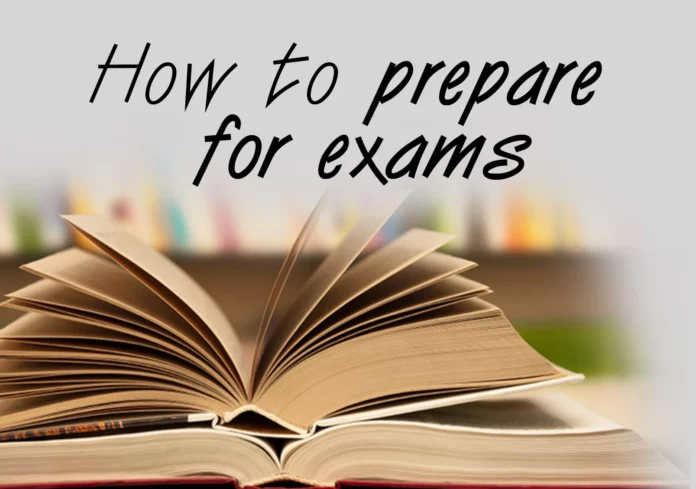Exams can be daunting for many students, but it doesn’t have to be so. Adopting effective strategies and a focused approach can turn this challenge into an opportunity for personal growth and achievement. This detailed guide will provide comprehensive insights into various methods and tips to help you prepare effectively for an exam.
Understand the Exam Format
Knowing the format of the exam can significantly influence your study strategies. Whether it’s a multiple-choice exam, short answer, essay, or a blend of all these types, each format requires a unique study approach.
You should focus on details for multiple-choice exams as the questions can be particular. Short-answer exams often test your understanding of the subject matter, requiring you to explain concepts in your own words.
In contrast, essay-style exams might demand a more profound understanding, as you need to elaborate arguments and defend your perspective on a topic.
Additionally, understanding the marking scheme can guide you on where to emphasize more while studying. If a topic carries more weight, it would be wise to dedicate more time and resources to grasp it fully.
Create A Comprehensive Study Plan
Planning is one of the critical pillars of exam preparation. Creating a comprehensive study plan is a proactive approach that enables you to manage your time effectively and reduces last-minute stress.
Start Early
The earlier you start studying for your exam, the more time you have to cover the syllabus thoroughly. Beginning your studies early provides ample time to revisit complex topics, practice, and revise.
Additionally, ensure that you have finished all your assignments before the exam. It will significantly enhance your chances as it directly impacts your overall score. To accomplish all your papers, consider utilizing the assistance from https://speedypaper.com/ writing service. By availing yourself of this service, your likelihood of passing the exam will increase substantially.
Break Your Syllabus Down
Break down your syllabus into manageable chunks. Group similar topics together and dedicate study sessions to each group. This strategy will help you establish connections between related concepts, enhancing your overall understanding.
Allocate Time Effectively
Ensure that your study plan allocates time according to the importance and complexity of different topics. More demanding subjects require additional study time.
Incorporate Breaks
Incorporate regular breaks in your study schedule. Studying for long periods without breaks can lead to fatigue and decreased productivity. Short breaks help refresh your mind, boosting your focus and retention.
Employ Active Learning Strategies
Active learning involves being hands-on with the study material rather than passively reading or listening to lectures. It’s a proven method that promotes better understanding and long-term knowledge retention.
Summarize Information
One practical active learning strategy is summarizing information. Instead of merely reading through your notes or textbooks, try to condense the material into your own words. This exercise requires you to understand the content deeply, significantly improving retention.
Teach Others
Teaching is another effective active learning technique. Explaining the material to someone else requires a thorough understanding, which strengthens your grasp of the subject matter. If you don’t have someone to teach, you could pretend to explain the topic to an imaginary audience.
Use Flashcards
Flashcards are an excellent tool for active learning. Write questions on one side of the card and the answers on the other. Regularly reviewing these cards can dramatically improve your memory and recall speed.
Practice Under Exam Conditions
Practicing under exam conditions helps you adapt to the pressure of timed exams, making the actual test less intimidating. This approach also allows you to gauge your understanding and recall abilities under similar circumstances as the actual exam.
Use Past Exam Papers
Past exam papers can be an invaluable resource. They give you an idea of what to expect, and practicing with them can help you get used to the structure and timing of the exam.
Time Yourself
When practicing, always time yourself. This practice helps you manage your time effectively during the exam, ensuring you can answer all questions within the given time.
Maintain A Healthy Lifestyle
While it’s crucial to dedicate time and effort to studying, maintaining a healthy lifestyle is just as important. Your physical health can significantly impact your mental capacity.
Regular Exercise
Regular physical activity has numerous benefits for cognitive function. It increases blood flow to the brain, improves mood and energy levels, and enhances memory and concentration.
Eat A Balanced Diet
Eating a balanced diet is essential for brain health. Foods rich in omega-3 fatty acids, antioxidants, and B vitamins can improve cognitive function and memory. Also, stay hydrated, as dehydration can lead to reduced concentration.
Get Adequate Sleep
Sleep is vital for memory consolidation – transferring new learning from short-term to long-term memory. It also affects focus and cognitive function. Strive for 7-9 hours of quality sleep each night. Check the tips to cure sleep disorder Or insomnia to get a better sleep regime.
Review and Reflect
After each study session, review and reflect on what you’ve learned. This habit reinforces your understanding and helps identify any gaps in your knowledge that need further study. Regular reviews and reflection significantly increase the effectiveness of your study sessions and leave you better prepared for the exam.
Conclusion
In conclusion, exam preparation requires understanding the exam format, creating a comprehensive study plan, employing active learning strategies, practicing under exam conditions, maintaining a healthy lifestyle, and reviewing and reflecting on your study material. Incorporating these strategies into your exam preparation can make the process more manageable and significantly enhance your chances of success.




